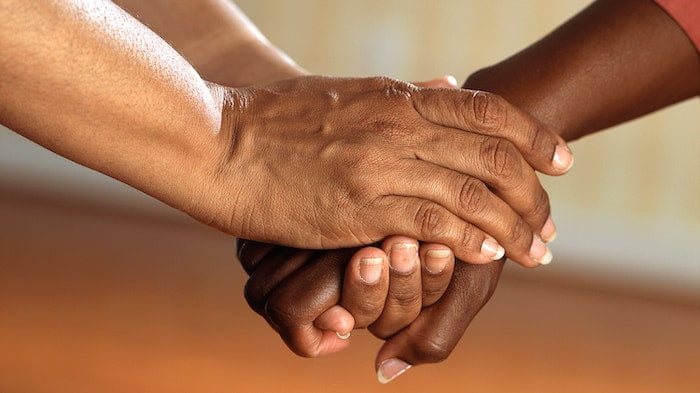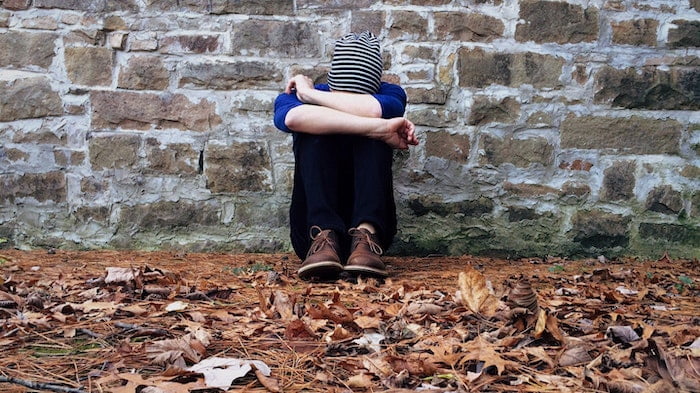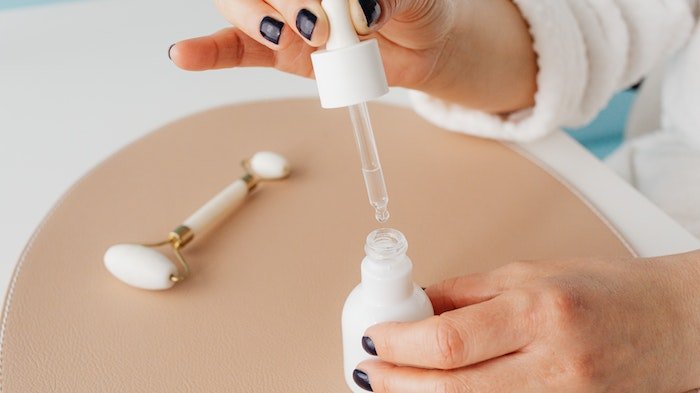11 Things to do Once Rehab has Finished
Lots of people who leave rehab feel nervous about what life on the outside of rehab might look like now that they are in recovery and sober.
People say that it’s like leaving high school. You might feel relieved, proud and excited about what life will be like, but you might also feel anxious about what your new life might look like too.
It is important to remember that it is only natural to feel this way. You are leaving the comfort of the rehab centre for the very first time, a place which has provided you with structure and routine.
Suddenly, you are left on your own, and your doctors and therapists won’t be there to guide you each and every second of the day.
You are also without a clear routine for the first time, and might find the free time that you now have overwhelming.
It is also important to remember that once you leave rehab, the hard work is not completely over. In order to stay sober and in recovery, in the long run, you will need to work hard each day to remain sober, avoid any triggers and overcome any cravings.
This won’t be easy. However, it will be an incredibly rewarding process and one that you will never regret.
There are a number of things that you can do to help yourself and give yourself a better chance of staying on track and in control of your cravings and triggers.
Below are just a few suggestions of what you can do to help yourself once you leave your rehab facility:
1. Try to Find New, Sober Friends

Lots of people become addicted to drugs or alcohol because they are surrounded by people who also abuse drugs and alcohol. Some meet these people in school, at university or at work.
In fact, science says that you tend to become more like the five people who you spend the most time with. So, if you spend your time with people who love to study, then you will most likely find yourself loving studying in no time.
However, if you surround yourself with people who drink too much or abuse drugs and alcohol, then you are putting yourself more at risk than if you stayed away from them.
If you stay surrounded by the same people as when you were addicted to drugs and alcohol, then you are more likely to be exposed to triggering behaviours and temptations [1].
If you have recently left rehab, then try to surround yourself with sober, more positive influences and people.
This might mean that you have to stop surrounding yourself with old friends who might trigger negative and unhealthy behaviour. Whilst this can be a difficult conversation to have, it will be worth it in the long run.
If you want to try to make new friends, then why not try a new hobby or activity, or try to find some part-time work where you might be able to make new friends who do not suffer from addiction issues.
2. Focus on Your Mental Health

When you leave rehab and return back home to your normal life, then it is only natural to feel stressed and anxious to a certain degree.
This is why you should work extra harder to focus on your mental health and keep a positive mindset. If you start to suffer from a more negative mindset, you might engage in negative self-talk and might put yourself at risk of relapsing in the future.
If you feel your mental health start to slip when you leave your rehab centre, then it is important to take note and act on this.
There are lots of different things you can do each day to try to maintain and improve your mental health. For example, you should try meditating on a daily basis, which can help to overcome any feelings of anxiety or depression.
There are lots of different ways you can meditate. Some people find that meditating to music helps them, and others might find that they want to use a meditation app such as Calm or Headspace to help and guide them [2].
Types of meditation include:
- Mindfulness
- Spiritual
- Focussed
- Movement
- Mantra
- Transcendental
- Progressive
- Loving-kindness
There are also a number of different ways you can improve and maintain your mental health, from eating well, to socialising with friends and family members, to finding ‘flow’ from a hobby and from exercising on a frequent basis [3].
3. Follow Your Aftercare Plan

Whilst at drug and alcohol rehab, you will spend a considerable amount of your time focussing on aftercare support for when you leave rehab.
You will create this aftercare plan with the help of doctors and other professionals at rehab. It will contain a list of helpful advice, support and techniques on how to stay sober, avoid any triggers and overcome any cravings.
Your aftercare and support plan will be coming home with you, and you should use it day to day and whenever you feel a craving, are exposed to a trigger to just generally start to feel a bit low.
Your aftercare and support plan will contain useful tips, tools and techniques to help you to stay sober. It will include a list of helplines, local self-help groups and meditation techniques.
Your aftercare and support plan should also include the HALT technique to relapse prevention. HALT stands for hungry, angry, lonely and tired and the study and the techniques states that if you experience any one of these four things, then you should always cure this craving first before jumping to the conclusion that you are craving the addictive substance.
You should try to keep your aftercare and support plan with you on a daily basis, as you never know when you might experience a trigger or a craving.
4. Attend Aftercare and Support Services

In addition to your aftercare and support plan, you should also engage in aftercare and support services in your local area. Whilst many people think that the hard work is over once you leave drug and alcohol rehab, this simply is not the case.
There are many different types of aftercare and support services across the UK. Some of these aftercare and support services include the following:
- SMART Meetings
SMART Meetings are a great form of aftercare and support services across the UK, and are available in most towns and cities both in person and online. Whilst they do not follow the 12 steps to recovery, they are a tried and proven form of aftercare and support for those who have recently left drug and alcohol rehab and who are in recovery.
- Home Detox
A home detox is a fantastic option for people to detox at home. If you leave rehab and relapse, then you might want to consider undergoing a detox to help you to overcome a physical addiction and any cravings.
Through a home detox you will receive any medication needed in the post, and you will receive any therapy needed over the phone.
- Alcoholics Anonymous and Narcotics Anonymous
Alcoholics Anonymous and Narcotics Anonymous are the most popular forms of aftercare and support services across the UK. They follow the 12 steps to recovery, and have helped hundreds of thousands of people remain sober and avoid cravings for drug and alcohol addiction.
- Outpatient Treatment
Lots of people who leave drug and alcohol rehab turn to outpatient rehab once they leave inpatient treatment as a way of maintaining any necessary ongoing treatment.
During outpatient drug and alcohol rehab treatment, you will remain living at home every day, and will eat and sleep at home. However, you will visit a rehab centre on either a daily or weekly basis for your treatment.
5. Look Out for Relapse Signs

A relapse is when someone starts to abuse drugs and alcohol again when they are in recovery. Whilst some people relapse only once, for others a one-time relapse might easily turn into them abusing again.
Addiction is a disease of the brain, which means that people struggle to control their emotions and cravings once they are addicted to the substance. This means that it is incredibly difficult to overcome your addiction, and as a result lots of people relapse once they leave rehab.
Whilst this doesn’t mean that treatment is ineffective and pointless, it simply means that individuals need to be better equipped when it comes to noticing and recognising the signs of a relapse.
In order to do so, they need to be keeping track of their triggers and vulnerabilities, and should keep track of how they are feeling day to day.
They should also be well aware of the different stages of a relapse, and what this looks like and means for them.
Stages of a Relapse
Lots of studies have shown that a relapse isn’t just a one-off event; in fact, a relapse is a series of stages and events. Understanding how these stages work and what you can do to overcome them could mean the difference between relapsing and staying on track and sober [4].
Below is a list of the different stages of a relapse in the order in which they occur.
Step 1 – The Emotional Relapse
The very first stage of anyone’s relapse is an emotional release. An emotional release is when the individual starts to feel a series of negative emotions and thoughts, without actively considering or thinking about using the addictive substance again.
Nevertheless, they might start to act more aggressively or negatively towards other people, without even being aware of how their emotions are changing. They will start to feel increasingly stressed, anxious and emotional, and might start to act more aggressively.
Step 2 – The Mental Relapse
The next stage of the relapse is a mental one. A mental relapse is when they start to actively think about abusing drugs and alcohol again.
They will want to do so to combat the negative emotions experienced throughout the emotional release, and they might even start to plan how they can get their hands on the addictive substance.
This is when they might start to talk to old friends again who abuse drugs and alcohol, and will start to talk about how good using used to be, and even how they ‘miss it’ to an extent.
Step 3 – The Physical Relapse
The next and final stage of a relapse is a physical one, which is when they start to physically abuse the substance again.
You will notice that their behaviour has changed back to how it used to be, and whether they admit it or not, at this stage they have fully relapsed and are abusing once again.
In order to overcome this, they will most likely need to undergo a physical detox from the addictive substance and will need to seek therapy from a professional.
6. Create Positive, Daily Habits and Routines

Studies have shown that creating positive, set daily routines is one of the most tried and tested ways of remaining positive and creating a positive and healthy mindset.
This is mainly because schedules and routines help to keep people feeling in control and productive. Even something as small as eating your meals at the same time every day, exercising frequently and going on a walk every day can boost your mindset considerably.
Lots of people believe that once you leave drug and alcohol rehab, that you should aim to keep yourself as busy as possible for the first few weeks. Whilst you should try to create some form of downtime every day for yourself to relax, you should try to keep to daily routines and habits to maintain a positive and healthy mindset.
If you are looking for some ways to build routines and habits into your daily life, then you should speak with your doctor and therapist for advice and support on what this could look like.
7. Exercise on a Frequent Basis

As mentioned above, exercising on a frequent basis can be fantastic for your mental health.
If you have never exercised before in the past, then you might feel a bit anxious or nervous about exercising for the very first time, especially when you might already be feeling particularly anxious or vulnerable.
However, studies have shown that exercising can do wonders for your mental health and for overcoming any addiction issues.
Not only does exercise give you something to focus on, but it also gives you a routine, as well as helping you to release the right kind of chemicals and endorphins to help aid positive mental health.
Any type of movement on a regular basis will help your body and mind to release positive chemicals such as dopamine and serotonin which will help to relapse some of the chemicals you used to feel when you abused drugs and alcohol.
Exercising on a regular basis will also help you to get out of the house, socialise and make new friends who are also focussed on exercising and staying healthy, and we are most probably less likely to take part in activities such as drug and alcohol abuse.
Why not join the local gym, a local running club or try out an online workout team where you can workout in the comfort of your own home?
8. Embrace a Range of New Hobbies to Try

There are lots of different hobbies and activities out there that you might enjoy, that you might never have contemplated before.
There might be hobbies that you have always wanted to do but have never tried because of your addiction. Now, there is nothing stopping you.
You could take this opportunity to take part in a new hobby on a weekly basis, or to learn a new skill that you have always wanted to master.
Lots of people join new groups where they are able to meet new people who do not abuse drugs or alcohol. They could join a local night class, learn a new language or join the local football or netball team.
It is important to opt for something that you genuinely want to do, or something that you are genuinely passionate about such as volunteering for a local charity. If you do not genuinely enjoy your hobby or feel passionate about it, then you probably won’t continue doing it in the long run.
Not only will this help to create a routine, but it will also help you to meet new people. You will also find that by doing these activities and hobbies, your self-worth and level of self-esteem is increased.
9. Practise Self-Care, Whatever that might Mean for You

‘Self-care’ has become a bit of a buzzword over recent years. However, the reality is that self-care means a lot of different things for different people.
For you, self-care might mean going on a run, or it might equally mean being with friends and family members.
Other people find that cooking themselves a nice, healthy meal is a form of self-care for them, and others find that doing their makeup, looking after their skin or getting their nails done does it for them.
There are a number of things that you can do to keep up your self-care on a daily basis.
For example, you should always endeavour to eat three, healthy meals a day, go on a daily walk, drink lots of water and try to get at least 7 – 8 hours of sleep every night, preferably at the same time every day. Self-care doesn’t need to be a big act, it can mean a series of little actions each day.
10. Find The Best Place for You to Live

Unfortunately, a lot of people who leave drug and alcohol rehab have to find some form of alternative, transitional housing for when they return back home.
This might be because, at home, there are a number of triggers and unhealthy influences that contributed to your addiction in the first place.
In order to overcome and avoid these triggers and unhealthy behaviours, you should try to look for an alternative place to live where you will not be triggered or influenced negatively.
You might also choose to opt for transitional housing that gives you a sense of structure, before returning back home again.
The reality is that leaving rehab to go straight back to normal life again can be extremely challenging and overwhelming, so it is only natural to want to move into transitional housing for a while before returning back to your previous home.
If you need help or advice on how to gain access to transitional housing after you leave rehab, then speak to a member of your aftercare and support team at your rehab centre.
Alternatively, you can speak to a member of the Rehab Recovery team for advice and support at 0800 088 66 86
11. Don’t be Afraid to Ask for Help

If you’ve recently left drug and alcohol rehab and need help and support on how to fill your time in a positive and healthy way, then speak to a member of the Rehab Recovery team for advice and support.
It is important to understand that it is only natural to feel anxious and nervous about leaving rehab, and it’s only natural to want to ask lots of questions. You should never be afraid to ask for help. After all, you have earnt it.
How to Support Someone Who Has Just Left Rehab
If you are reading this article, then it might be because you are supporting a loved one who has recently left drug and alcohol rehab and are looking for ways to support them.
Whilst suggesting ways to fill their time is a fantastic way to support them, there are also a number of different ways to help and support them too.
For example, some of these things are listed below:
- Keep a Clean and Tidy House
Whilst this might not be the first thing that comes to your mind when you think about supporting your loved one, keeping a clean and tidy house is a fantastic way of helping them to feel in control and productive.
You might need to make the odd change to your living environment to better support them.
If they aren’t living with you, then you should go around to their house and make sure that their house is in a clean and suitable condition for them before they return from drug and alcohol rehab.
You should ensure that you have removed all drugs and alcohol from the premises, including any paraphernalia.
- Encourage a Healthy Routine
You should also try to encourage a positive, healthy routine for them when they get back home. You should try to go on any exercise plans with them, to ensure that they do not feel anxious or alone.
You should also try to eat healthy when you are around them, and offer to attend any new hobbies that they want to try with them for support.
You should also ensure that they are doing the smaller, daily routines such as cooking three healthy meals a day, drinking lots of water and going on a daily walk. It’s surprising what these little habits can do to your mental health as well as theirs.
- Lock Up Any Prescription Drugs and Medications
You will also need to lock up any prescription medications in your house and in theirs, depending on where they will be living. It is better to be safe than sorry, and this might only be necessary for the first few weeks or months into their recovery.
- Practice Honest, Open Communication
When your loved one returns back home, you should do your best to practise open and honest communication. This includes communicating your emotions and thoughts on a frequent basis and avoiding any passive-aggressive communication with anyone around them.
When it comes down to it, this is all about building trust between you and the individual. They need to feel like they are in a safe and comfortable environment, without feeling attacked or confronted at all.
- Educate Yourself on Addiction
Finally, the best thing you can do to support your loved one after they leave rehab is to educate yourself on addiction. You should learn the warning signs of a relapse, and learn how to manage any withdrawal symptoms.
You also need to understand that recovery takes time, and that you can’t simply do the work for them.
It is also important to understand that you need to look after yourself, as well as them. You should take some time out each week to ensure that you are okay, and take part in some self-care techniques to ensure that you are in a positive place to look after your loved one.
If you are struggling to find things to do once you have left drug and alcohol rehab, then speak to a member of the Rehab Recovery team for advice and support on 0800 088 66 86. Our friendly and confidential team will be able to suggest and recommend a number of things for you to do.
References
[1] “Finding Friends after Addiction Rehabilitation.” U.S. News and World Report, February 10, 2017.
[2] “Recovery and Recovery Support.” Substance Abuse and Mental Health Services Administration, October 5, 2015.
[3] “Depression and Anxiety: Exercise Eases Symptoms.” Mayo Clinic. October 10, 2014.
[4] Guenzel N, McChargue D. Addiction Relapse Prevention. [Updated 2022 May 8]. In: StatPearls [Internet]. Treasure Island (FL): StatPearls Publishing; 2022 Jan-. Available from: https://www.ncbi.nlm.nih.gov/books/NBK551500/




